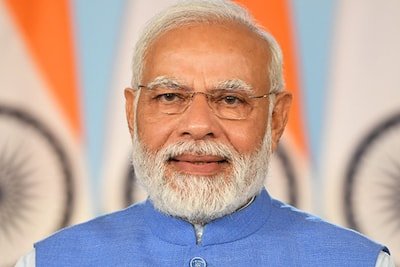
The Modi government recently completed ten years in office, consistently emphasizing economic growth as a central priority. This administration frequently promotes concepts like fintech and digital transactions, highlighting modernization in financial practices. However, it is often overlooked that a significant portion of the Indian population still depends on cash for daily transactions. While corporate fraud has been taken seriously, the government also celebrates innovation by honouring innovators with various awards. Additionally, banks today disburse loans and scholarships more easily, in contrast to the past when people often had to pledge assets like gold or homes as collateral.
Demonetization stands out as one of the most consequential economic moves in recent Indian history. During this period, there were substantial real estate transactions, stock purchases, and jewellery acquisitions, with transactions amounting to crores. Cash transactions have declined significantly since demonetization, as people increasingly realize the efficiency and security of online payments. The growth in digital transactions has also brought about greater tax transparency and compliance.
The government has invested in infrastructure by focusing on rural and urban roads, as well as on the development of modern National Highways. States, municipalities, and panchayats have received financial support to improve local infrastructure. Payments under the MGNREGA scheme, however, have been halted in opposition-ruled states due to alleged corruption issues, and Direct Benefit Transfers (DBTs) have been implemented to ensure more transparent fund transfers. Government agencies have been reorganized, and the parliament, executive, and judiciary are now working in tandem to drive national development.
This government has also prioritized transportation upgrades through projects like Vande Bharat, NAMO Bharat, and Amrit Bharat AC trains. Notably, the availability of non-AC trains has not been reduced, and fares remain affordable, with service quality continuing to improve. QR code-based metro ticketing is a recent addition that enhances convenience.
Protectionism is re-emerging in India, with policies aimed at limiting foreign capital entry to prevent crony capitalism from taking root. Financial capital is also easing trade barriers, compelling Indian firms to remain competitive and reduce prices due to the diminishing monopoly power of domestic companies.
Large corporations benefit from government contracts, licenses, and public assets, such as airports and mines, while also securing loans from public banks. In this competitive environment, these companies often buy out failing startups or offer discounts to capture market share. Such moves are seen by the government as driving the country toward economic growth, and the implementation of GST has further strengthened tax compliance.
The average wealth of Indians has increased, and the Indian stock market has expanded significantly, with most ownership remaining in Indian hands. Yet, the government should revitalize Public Sector Undertakings (PSUs) such as Bengal Chemical and Pharmaceuticals (BCPL), BSNL, MTNL, and HMT to counterbalance the dominance of large private firms. These PSUs would not only create employment by limiting the reliance on AI and robotics but would also offer affordable products, such as BCPL’s naphthalene balls and phenol, Mysore Sandal Soap, HMT watches, and BSNL internet services. The public sector should continue to produce goods and services for the common people, providing an alternative to the products of major private firms.
The government should also consider subsidizing essential products and expanding their availability through Kirana stores, online marketplaces, and dedicated websites. Contracts should be awarded through transparent online tendering, and vacancies in government positions should be filled promptly. There is no need to dismantle the private sector as long as it operates within a regulated framework.
Ultimately, the government must control firms that exploit their market power by setting high prices, which pushes many into poverty. Conversely, firms that prioritise employee welfare and maintain affordable pricing should be rewarded. Regaining control of the economy from monopolistic tendencies can restore a more balanced economic landscape where both public and private sectors contribute to inclusive growth.
Leave a Reply